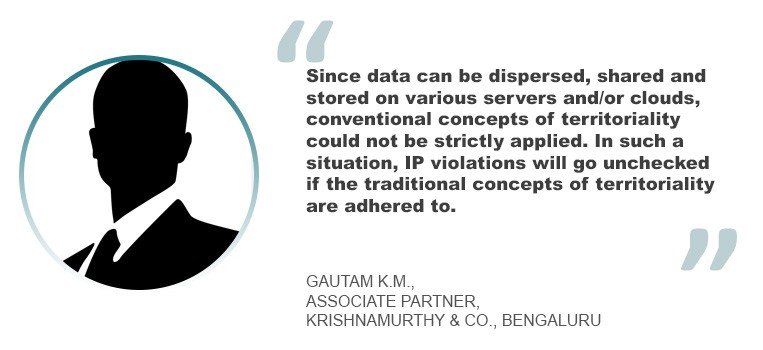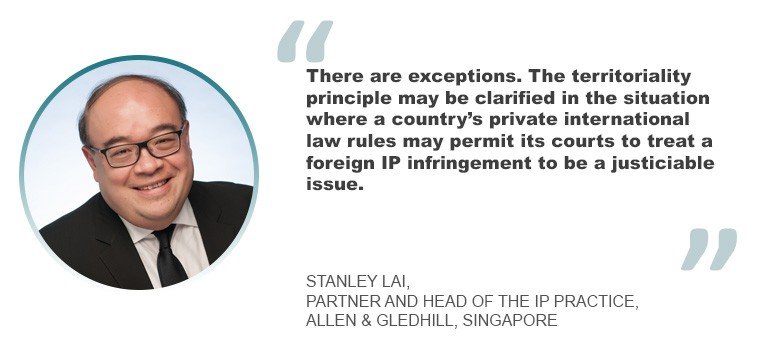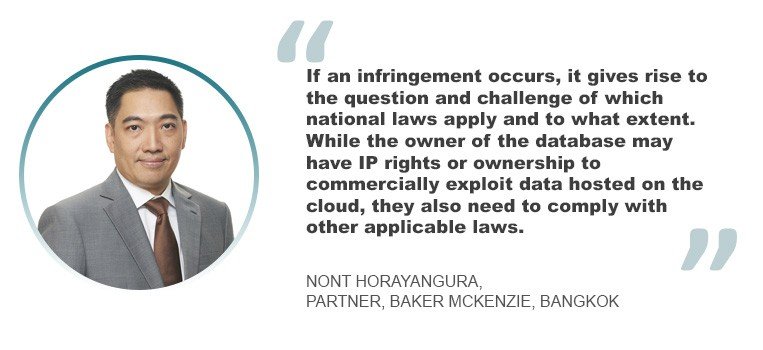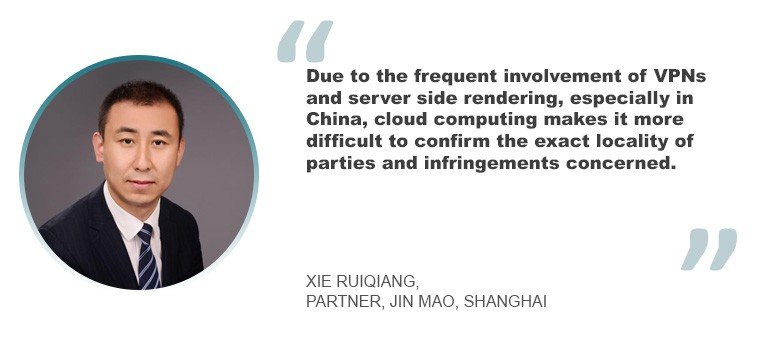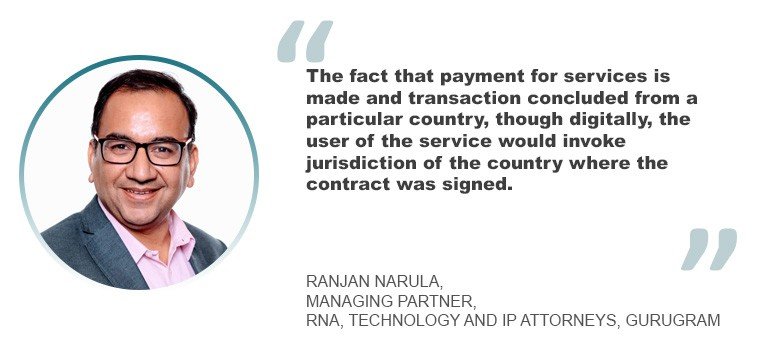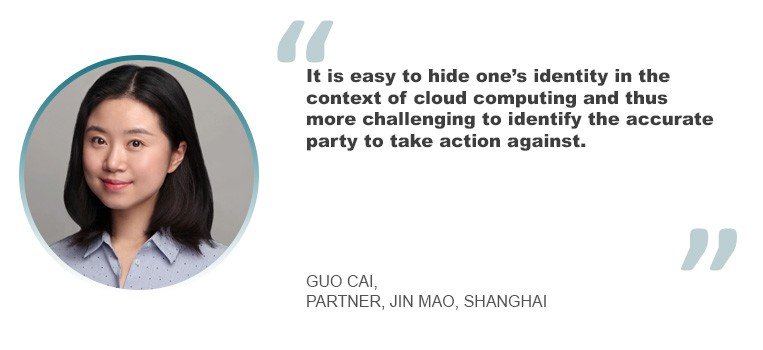For example, the Reserve Bank of India requires payment system providers authorized or approved by the bank to store all of their data in India, rather than outside India. Data processing may be undertaken outside, but storage must be done only in India post processing. Plus, the data should include the complete end-to-end transaction details.
In Thailand, the question highlights a problem area.
“The application of existing IP and data protection laws in the context of cloud computing and data storage may not be fully working out since there is no practical guidance for the digitalization era at the moment,” said Horayangura. “Also, there are certain issues from an enforcement point of view, such as how to prove the location of the infringement or illegal action committed on the cloud or how the local authorities will cross-jurisdictionally enforce the laws.”
Territoriality issues: What else can be done?
But surely, something or some other things can be done to address these challenges in territoriality.
For Horayangura, a more practical guidance or interpretation of the laws in the digitalization era from authorities will offer a solution.
For Narula, harmonization of the law is needed. He cited the global tax deal on digital transactions, which was agreed upon by 136 countries. Under the deal, countries will be able to collect more taxes from top-tier multinational companies based on their sales made within the jurisdiction. The international tax deal, he affirmed, is a good example of cooperation on issues that impact further development and diffusion of cloud technology.
Having a contract is also key.
“The cloud service providers and users should always be bound by contractual obligations for use of the cloud computing and data storage by identifying important issues under the contract, such as choice of law and court, parties’ liabilities and indemnifications,” said Horayangura.
Lai agrees.
“We also have to be mindful of contractual arrangements and binding corporate rules that may regulate cross-border transfers of data and information, and these are separately enforced in personam,” he said, “regardless of a cloud or other data storage component.”
Lai maintains, however, that it is still possible to assess and identify a lex causae or the law governing the case of a particular substantive obligation and breach.
“Where cloud computing and data storage are concerned, the applicable national law(s) may be derived from server locations and other storage locations. With cloud computing, servers are still not dispensed with. Where data and information are collected and received, regardless of storage, it would not be difficult to isolate the applicable law or statutory provision that would govern,” he explained.
Navigating the “territoriality” legalities of IP, data privacy and protection in the era of cloud computing and data storage is like stepping into new territory. Or is it?
- Espie Angelica A. de Leon



